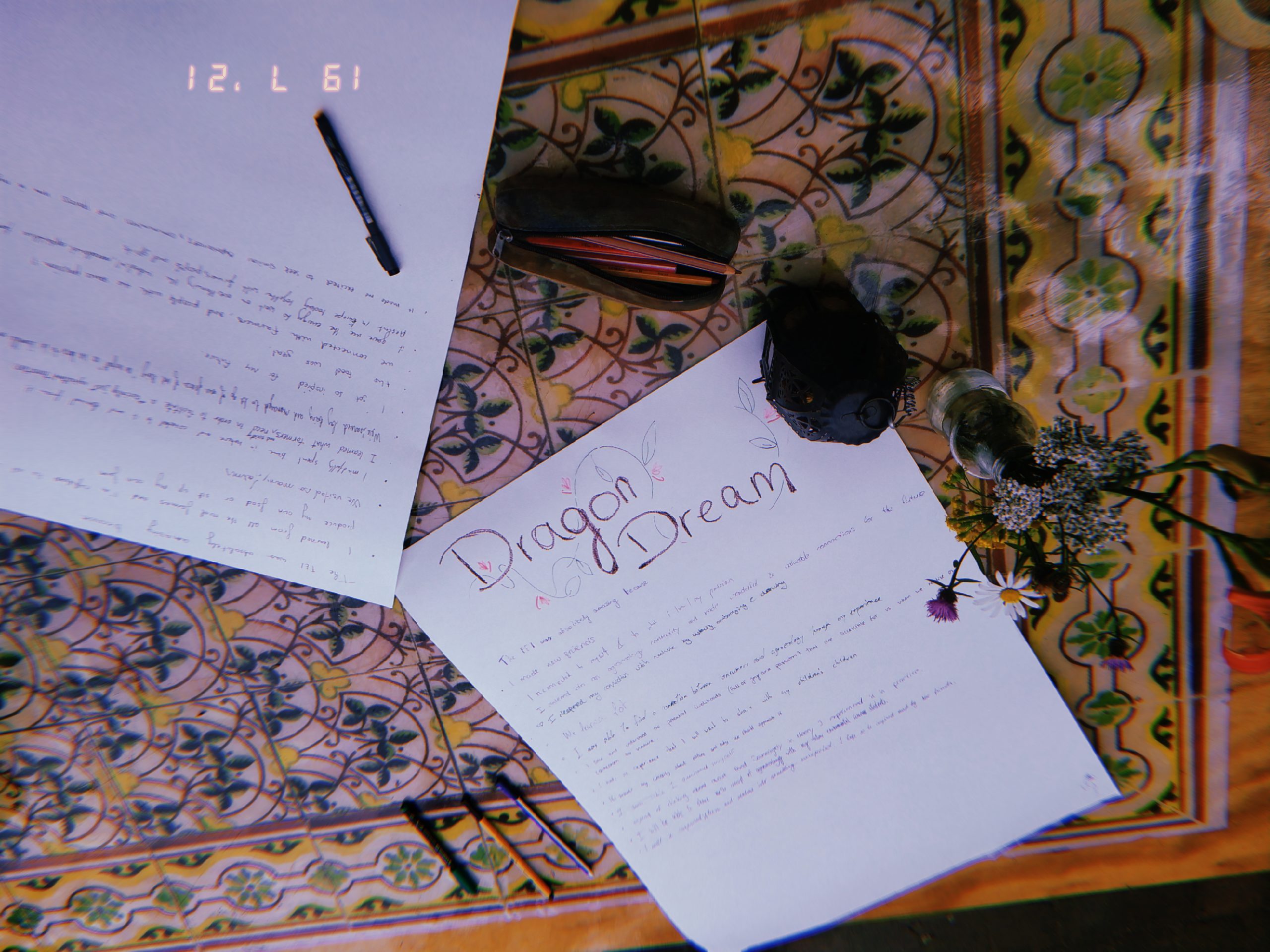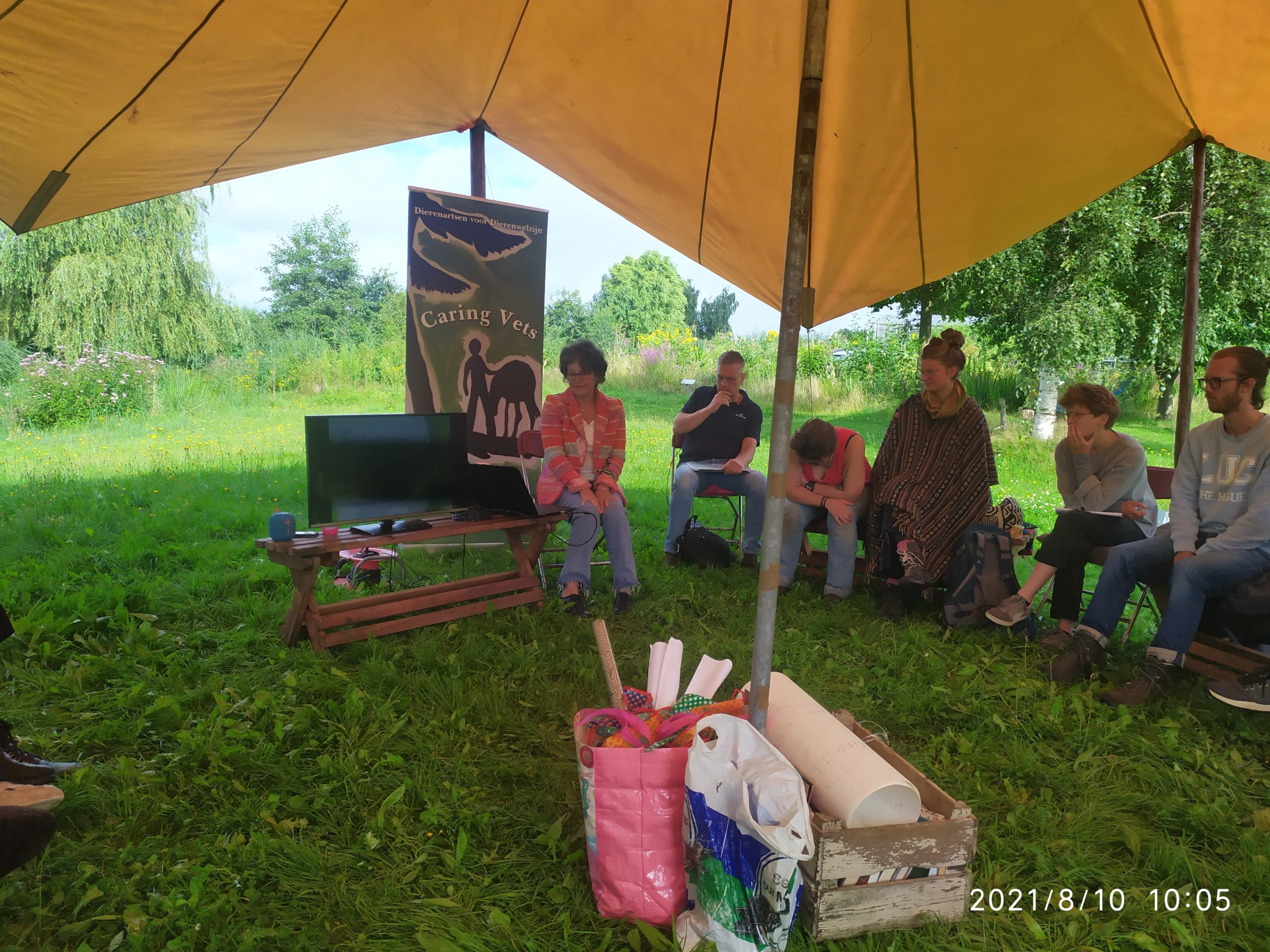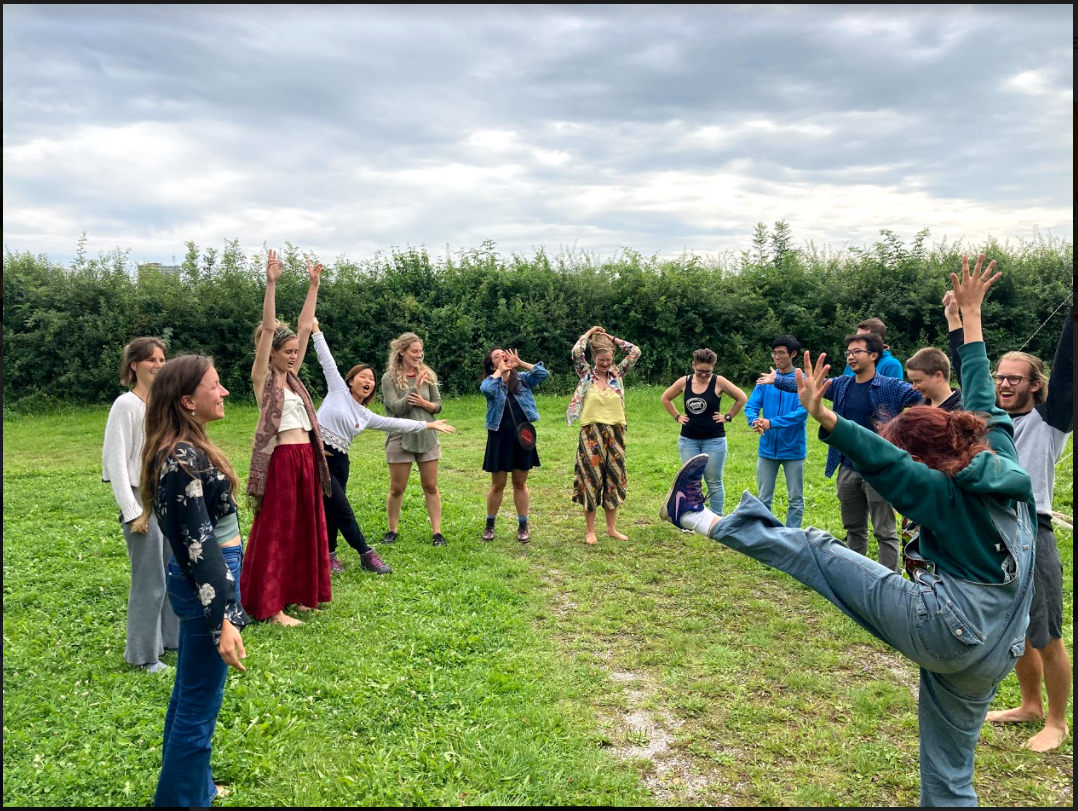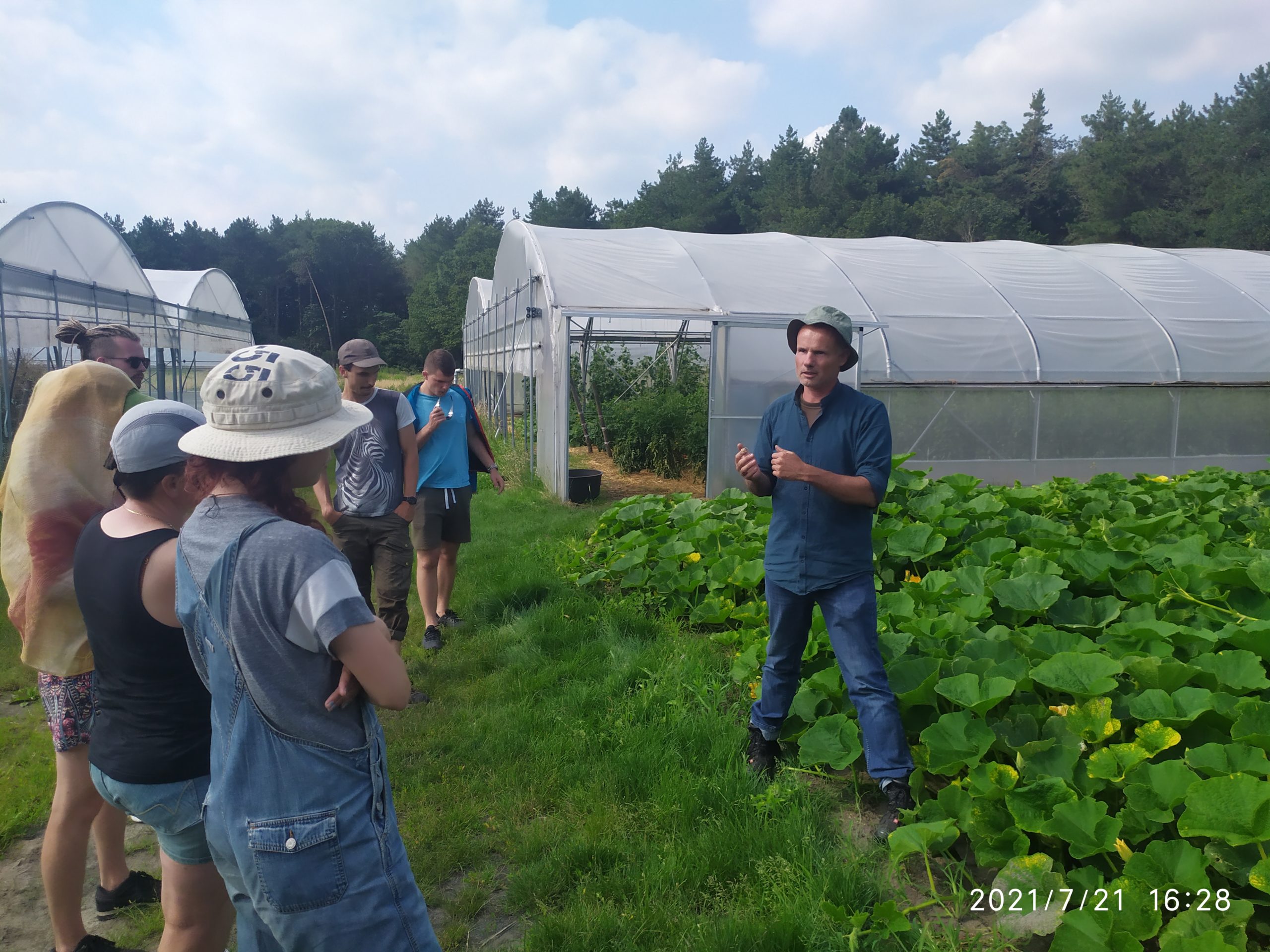FEI 2021
On the 19th of July, a group of around twenty people came together at the creative community garden for the Farm Experience Internship (FEI) 2021, a 3 ECTS international summer course at Wageningen University. The group consisted of people from all over the world with different interests, work experiences an d academic backgrounds. Together, we were excited to set out on a four week journey to explore and experience agroecology with farmers, gardeners, activists, scientists and NGO’s.
d academic backgrounds. Together, we were excited to set out on a four week journey to explore and experience agroecology with farmers, gardeners, activists, scientists and NGO’s.
“There were so many interesting speakers and excursions“, one of the participants said. Some highlights of the first week were farmer Bregje Hamelynck from Us Hof who came to talk to us about permaculture and Marc Siepman who explored the complex ecosystems that are alive in the soil. We learned about agroecology, not only by engaging with speakers at the creative community garden, but also by going out there! We visited the beautiful Doornik Natuurakkers of Louis Dolmans and the biological garden the ‘Ommuurde Tuin’.
Heitor Texeira Mancini asked us to define what agroecology means to us in one word. Some people were referring to harmony/balance, others to social movements. Of course both the practical farming methods, the social implications and the movements all come together in the term agroecology. It’s about bringing back food sovereignty to farmers and about creating a new form of knowledge that brings together scientific knowledge and traditional knowledge, which is culture- and place-based. Heitor gave us the tools we needed to dive into the subject for the next weeks.

Looking for different ways to structure our food system, requires us to also look at the different structures within ourselves. What is our own relationship to nature? How does the current food system make us feel? What forms of knowledge do we value over others? We wanted to engage with agroecology through different forms of learning. Often at the university, much of the learning happens only in our heads, but during the FEI, we also included our hands and our hearts to learn.
At the excursion to the Droevendaal Food Forest, Pablo van Neste asked us to connect with our natural surroundings with blindfolds on. During the second and third week, we got our hands dirty by working at different farms in the Netherlands. In the fourth week, we brought everything together and reflected on bringing theory to practice. How can our experience of the past weeks be a part of the transition? Jelleke de Nooy talked about how transitions in society happen, and where she situates the agroecological movement in this theory. We also talked to people from social movements, such as Extinction Rebellion and Re-Peat, about what it means to be an activist, and the different forms of activism, through art and through living. Lastly, the discussion about the place of animals in the food system took a major place in the last week, and we visited a heather shepherd to see the joy of the sheep in nature. As a break from large discussions, we visited the famous food forest Ketelbroek, where Wouter van Eck showed us his perspective on sustainable food production and what it’s like to be a “lazy farmer”.
 “I found a community,“ is what one of the participants said during the last day, “a safe place to become part of this beautiful network.” Now, what’s to come? We may go into all different directions, yet we will be more sensitive scientists. We might become farmers and strengthen the agroecological movement by being the change we want to see in agriculture and go back to the soil, to the essence. Or we might become policy makers, aiming to change the structures that make it so difficult for young farmers to access land and for farmers in general to earn a livable income out of food production. Who knows what the future will bring, but this summer has brought us all a lot of transformative energy and inspiration.
“I found a community,“ is what one of the participants said during the last day, “a safe place to become part of this beautiful network.” Now, what’s to come? We may go into all different directions, yet we will be more sensitive scientists. We might become farmers and strengthen the agroecological movement by being the change we want to see in agriculture and go back to the soil, to the essence. Or we might become policy makers, aiming to change the structures that make it so difficult for young farmers to access land and for farmers in general to earn a livable income out of food production. Who knows what the future will bring, but this summer has brought us all a lot of transformative energy and inspiration.
Do you want to know more about the FEI 2021? View the booklet here.
Do you want to join the organization of the FEI in 2022, or find out more here or send an email to st.boerengroep@wur.nl . You can also organize the FEI as part of an internship with Boerengroep.



